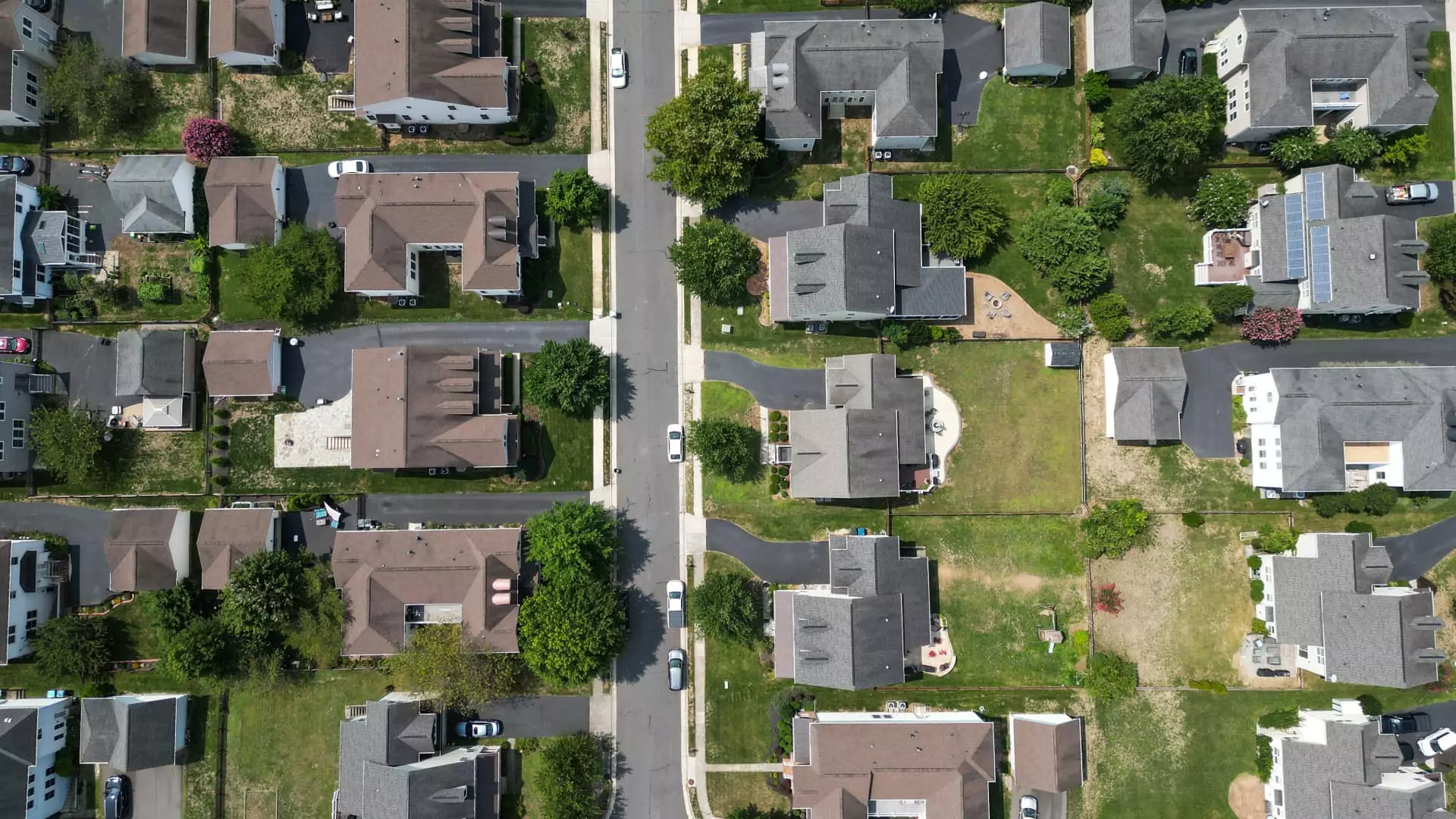The recent data from the Mortgage Bankers Association reveals a declining trend in mortgage demand, marked by a notable 6.7% drop in application volume from the previous week. This decline has brought mortgage activity to the lowest point seen since July of this year. Interestingly, this downturn occurred despite the fact that mortgage interest rates have remained static over the same period. The average contract interest rate for 30-year fixed mortgages, conforming to a loan balance cap of $766,550, stood firm at 6.52%. Such a peculiar scenario prompts deeper reflection on the underlying factors influencing consumer behavior in today’s mortgage market.
While the overall mortgage demand has waned, refinancing trends show a more pronounced decrease, with an 8% drop recorded for the week. This figure becomes more striking when considering that refinance demand is still reportedly 90% higher compared to the same week last year, when interest rates were significantly higher, approaching 8%. Concurrently, applications for new home purchases also experienced a 5% decline in the past week. Despite being marginally higher—by 3%—than the same week a year ago, potential homebuyers are facing a more complex market landscape than before, leading to reservations that affect their willingness to secure loans.
Although current interest rates are considerably more favorable than they were a year ago, potential homebuyers are grappling with escalating house prices that have emerged as a significant hurdle. Real estate experts note that buyers are increasingly adopting a ‘wait-and-see’ approach, especially in the lead-up to the upcoming presidential election. This sentiment reflects broader uncertainties in the market, pushing buyers to delay their purchasing decisions, even with better borrowing conditions.
Joel Kan, an economist at the MBA, points out a notable shift, as for-sale inventory appears to be loosening and price growth is plateauing in various markets. This combination of factors—easing prices and lower interest rates—could create an advantageous situation for prospective buyers, but the decision-making process remains fraught with caution.
As the week commenced, mortgage rates took an unexpected turn, with a recent survey revealing a significant 14-basis point uptick for the 30-year fixed mortgage, reaching its highest level since July. The rise in interest rates signaling a potential shift in the market could further influence buyer sentiment and behavior. If this trend continues, it could deter prospective buyers even more, leading to further declines in mortgage applications.
Overall, the current state of the mortgage market highlights a complex interplay of interest rates, housing prices, and consumer psychology. As potential buyers navigate through these uncertain waters, observing their choices will be critical for understanding the future direction of the real estate market. The coming weeks, especially in light of external factors like the presidential election, will be crucial in determining whether these market dynamics will shift or continue along their current trajectory.

